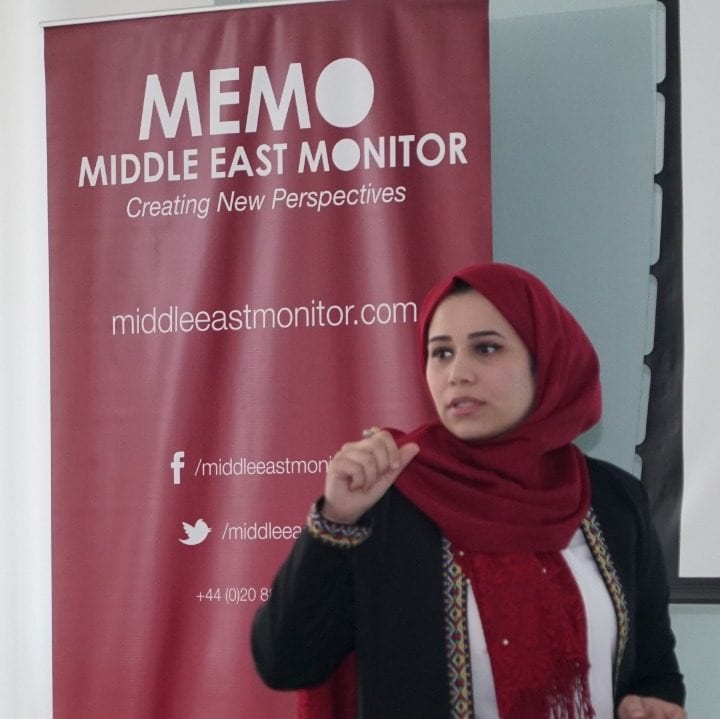Israel’s Ynet news website has claimed that discussions have taken place in the European Parliament about freezing funding for education programmes in the occupied Palestinian territories, because pupils are “encouraged” towards violence against Israelis. Such allegations are not new. In December 2020, Norway’s legislature backed cuts in aid to the Palestinian Authority under the pretext of its failure to reduce incitement against Israeli Jews in the school curriculum. Nothing is said about Israeli incitement of children, especially illegal settlers, to attack Palestinians and their occupied land.
The world, it seems, is not only satisfied with being silent about Israel’s occupation of Palestinian land, but also wants it to occupy Palestinian minds, culture and education. Again, this is nothing new. Israel has always known that education empowers people to create opportunities and bring about crucial political change, such as ending a brutal military occupation, for example. The Israeli occupation authorities have thus been trying to control the Palestinian curriculum ever since it was introduced in 2000.
“Israel and its media platforms, whether official or independent, are still playing the same tune that the Palestinian curriculum incites violence and terrorism,” explained researcher and historian Dr Johnny Mansour. “It is applying constant pressure concerning terms, phrases and topics related to the Palestinian resistance and the Israeli occupation. However, Israel does not change any of its own curriculums or educational textbooks related to its military offensives against the Palestinians. It is proud of what the ‘Jewish terrorist’ gangs did in terms of killing, bombing and ethnic cleansing before and after 1948.” Author Robin Corbett details “Jewish terrorism 1944-47” against Palestinians and the British Mandate authorities in his book Guerrilla Warfare: From 1939 to the Present Day (Orbis, 1986).
READ: Palestine Travellers are flying the flag for their country
The educational oppression by the Israeli occupation of Palestine has evolved over time. From 1948 until Israel occupied the West Bank, East Jerusalem and the Gaza Strip in 1967, Palestinian schools in the West Bank followed the Jordanian curriculum, while those in Gaza followed Egypt’s. Schools in Israel followed the Israeli curriculum which offered the possibility of learning Arabic; one-fifth of all Israeli citizens are, remember, Palestinian Arabs. Jordanian and Egyptian textbooks were adopted by the Palestinians at this stage, subject to censorship by the Israeli military government in charge of Palestinian education from 1967 until 1993. Whole books were banned, while words and sometimes sections of textbooks were deleted under the pretext of “security”.

Pupils in Gaza on the first day of the new academic year [Mohammed Asad/Middle East Monitor]
“The existence of a Palestinian curriculum is an achievement in itself,” Mansour told me. “It was, and remains, a form of independence in the educational sector, even if it is surrounded and observed through the microscope of the Israeli occupation.”
The Palestinian curriculum has been developed across all school stages. It covers Palestinian history including, of course, the occupation since 1948. Outside interference has still been seen, though, with financial aid conditional in some cases upon imposing the Israeli agenda on teaching materials and textbooks; even on the topics studied.
“Funding for education, the health sector, infrastructure and other fields allows the West to force the Palestinians to adopt restrictive observations and directives for the school curriculum. The West insists that the Palestinian curriculum should be ‘neutral’ and ‘moderate’, as defined by pro-Israel donors.”
READ: Meet Aya Halaf, a Palestinian singer and teacher keeping her heritage alive
The situation of education in Jerusalem is the most complex, as it is under the control of the Israeli Ministry of Education in Jerusalem and covers more than 65 per cent of the Palestinian Arab schools in the occupied city. These schools are under great pressure — involving coercion, enticement and open intimidation — to replace the Palestinian curriculum with the Israeli curriculum.
Palestinian Jerusalemites are afraid that the day will come when their children will be forced to study textbooks which describe their city as the “undivided capital of Israel”. According to the Israeli Ministry of Education, the aim is to “improve the life quality of residents of Arab neighbourhoods in Jerusalem and enhance their ability to integrate into Israeli society.” Hence the push for Israel to control by all means possible the education sector across occupied Jerusalem.

Pupils in Gaza on the first day of the new academic year [Mohammed Asad/Middle East Monitor]
According to Palestinian academic Dr Mohammad Amro, online platforms can play an important role in facing such challenges and support the dissemination of Palestinian culture and identity. “There is a lot of material online to educate and raise awareness about Palestine, whether at home or abroad,” he told me. “Many institutions and initiatives upload schemes of work and lesson plans for teaching about Palestine, refugees and Palestinian history.”
Moreover, he believes that the role of the teacher in what he called the “invisible education” of Palestinian children in formal settings where “neutral” material has been imposed is crucial. A good teacher, he said, will be able to present the Palestinian context no matter what resources and teaching materials are being used. “The teacher can transform the school from a place where information is received and processed, into a place for energising and empowering young Palestinians.”
Palestinians have known for decades that education is a vital part of their liberation struggle. As a result, the Israeli government seeks to suppress even non-violent resistance to its brutal occupation, and has done everything possible to weaken the education sector in the occupied Palestinian territories since 1967. That campaign is ongoing, as the occupation state tries to obliterate Palestinian identity, heritage and history, and occupy minds as well as land through the school curriculum used by Palestinian children.
The views expressed in this article belong to the author and do not necessarily reflect the editorial policy of Middle East Monitor.

![Pupils in Gaza on the first day of the new academic year [Mohammed Asad/Middle East Monitor]](https://i0.wp.com/www.middleeastmonitor.com/wp-content/uploads/2021/09/cover-scaled-e1632477346528.jpg?fit=920%2C613&ssl=1)







